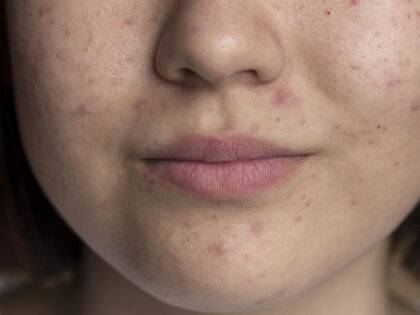Understanding the Basics of Skincare: A Dermatologist’s Guide
-
admin
- Posted on

Skincare is more than just a daily routine; it’s a fundamental aspect of maintaining healthy, radiant skin. As a dermatologist, I’ve seen firsthand how proper skincare can transform the way our skin looks and feels. In this blog, we’ll delve into the basics of skincare, providing you with valuable insights and tips to help you achieve and maintain the beautiful, healthy skin you desire.
- Know Your Skin Type
Understanding your skin type is the cornerstone of an effective skincare routine. Skin types can be broadly categorized into four categories: oily, dry, combination, and sensitive. Each type requires a tailored approach to ensure the best results. Consult with a dermatologist if you’re unsure about your skin type, as they can provide a professional assessment.
- Cleansing
Cleansing is a vital step in any skincare routine. It helps remove dirt, excess oil, and impurities from the skin’s surface, preventing breakouts and promoting a fresh, clean canvas. Use a gentle, pH-balanced cleanser suitable for your skin type, and avoid harsh scrubbing that can damage your skin’s protective barrier.
- Moisturize
Hydrated skin is healthy skin. Moisturizers help lock in moisture, keeping your skin soft and supple. Choose a moisturizer that aligns with your skin type and contains ingredients like hyaluronic acid, glycerin, or ceramides for optimal hydration.
- Sun Protection
The sun’s UV rays are one of the most significant contributors to premature skin aging and skin cancers. Make sunscreen a non-negotiable part of your skincare routine. Opt for a broad-spectrum sunscreen with SPF 30 or higher, and apply it daily, even on cloudy days.
- Exfoliation
Exfoliation is the process of removing dead skin cells to reveal fresh, healthy skin underneath. It can be done chemically or mechanically. For most skin types, a chemical exfoliant with ingredients like alpha-hydroxy acids (AHAs) or beta-hydroxy acids (BHAs) is gentler and more effective than abrasive physical exfoliants.
- Skin Serums
Serums are concentrated products designed to target specific skin concerns like aging, pigmentation, or acne. Incorporating a serum into your routine can provide extra nourishment and address particular issues. Look for serums that contain ingredients like vitamin C, retinol, or niacinamide.
- Patience is Key
Achieving noticeable results with skincare can take time. Be patient and consistent with your routine. Changes in your skin may not be immediate, but with continued care, you’ll see improvement over weeks and months.
- Avoid Harsh Ingredients
Steer clear of skincare products with harsh or irritating ingredients. Fragrances, alcohol, and sulfates can cause dryness, redness, and irritation. Instead, choose products with gentle, non-comedogenic ingredients.
- Consult a Professional
If you have persistent skin issues, it’s wise to consult a dermatologist. They can provide tailored advice and treatments for your unique skin concerns, ensuring you achieve the best possible results.
- Lifestyle Factors
Remember that skincare goes beyond what you apply to your skin. Factors like a balanced diet, staying hydrated, managing stress, and getting enough sleep can significantly impact the health and appearance of your skin. Ensure you maintain a healthy lifestyle to complement your skincare efforts.
Conclusion
Skincare is a blend of science, art, and self-care. Understanding the basics of skincare, as presented by a dermatologist, empowers you to make informed choices and build a routine that suits your unique skin type and concerns. With the right products, consistency, and a touch of patience, you can unlock the secret to healthy, glowing skin that radiates beauty and confidence.






